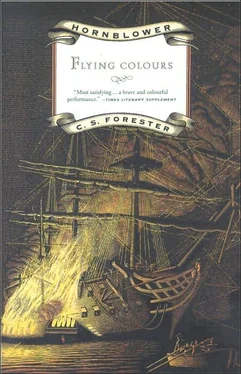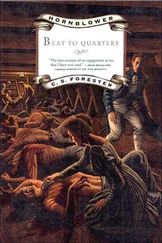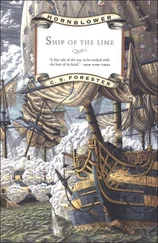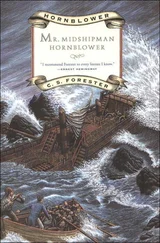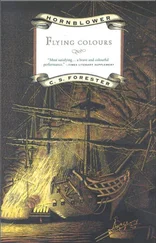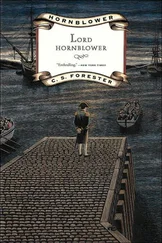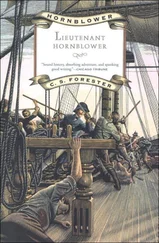Cecil Forester - Flying Colours
Здесь есть возможность читать онлайн «Cecil Forester - Flying Colours» весь текст электронной книги совершенно бесплатно (целиком полную версию без сокращений). В некоторых случаях можно слушать аудио, скачать через торрент в формате fb2 и присутствует краткое содержание. Год выпуска: 1989, ISBN: 1989, Издательство: Back Bay Books, Жанр: Исторические приключения, Путешествия и география, Морские приключения, на английском языке. Описание произведения, (предисловие) а так же отзывы посетителей доступны на портале библиотеки ЛибКат.
- Название:Flying Colours
- Автор:
- Издательство:Back Bay Books
- Жанр:
- Год:1989
- ISBN:0316289396
- Рейтинг книги:5 / 5. Голосов: 1
-
Избранное:Добавить в избранное
- Отзывы:
-
Ваша оценка:
- 100
- 1
- 2
- 3
- 4
- 5
Flying Colours: краткое содержание, описание и аннотация
Предлагаем к чтению аннотацию, описание, краткое содержание или предисловие (зависит от того, что написал сам автор книги «Flying Colours»). Если вы не нашли необходимую информацию о книге — напишите в комментариях, мы постараемся отыскать её.
Flying Colours — читать онлайн бесплатно полную книгу (весь текст) целиком
Ниже представлен текст книги, разбитый по страницам. Система сохранения места последней прочитанной страницы, позволяет с удобством читать онлайн бесплатно книгу «Flying Colours», без необходимости каждый раз заново искать на чём Вы остановились. Поставьте закладку, и сможете в любой момент перейти на страницу, на которой закончили чтение.
Интервал:
Закладка:
Hornblower bowed to Lady This and Lady That, to Lord Somebody and to Sir John Somebody-else. Bold eyes and bare arms, exquisite clothes and blue Garter-ribbons, were all the impressions Hornblower received. He was conscious that the uniform made for him by the Victory’s tailor was a bad fit.
“Now let’s get the business done with,” said the Prince. “Call those fellows in.”
Someone was spreading a carpet on the floor, someone else was bearing in a cushion on which something winked and sparkled. There was a little procession of three solemn men in red cloaks. Someone dropped on one knee to present the Prince with a sword.
“Kneel, sir,” said Lord Conyngham to Hornblower.
He felt the accolade and heard the formal words which dubbed him knight. But when he rose, a little dazed, the ceremony was by no means over. There was a ribbon to be hung over his shoulder, a star to be pinned on his breast, a red cloak to be draped about him, a vow to be repeated and signatures written. He was being invested as a Knight of the Most Honourable Order of the Bath, as someone loudly proclaimed. He was Sir Horatio Hornblower, with a ribbon and star to wear for the rest of his life. At last they took the cloak from his shoulders again and the officials of the order withdrew.
“Let me be the first to congratulate you, Sir Horatio,” said the Duke of Clarence, coming forward, his kindly imbecile face wreathed in smiles.
“Thank you, sir,” said Hornblower. The broad star thumped his chest as he bowed again.
“My best wishes, Colonel,” said the Prince Regent.
Hornblower was conscious of all the eyes turned on him at that speech; it was that which warned him that the Prince was not making a slip regarding his rank.
“Sir?” he said, inquiringly, as seemed to be expected of him.
“His Royal Highness,” explained the Duke, “has been pleased to appoint you one of his Colonels of Marines.”
A Colonel of Marines received pay to the amount of twelve hundred pounds a year, and did no duty for it. It was an appointment given as a reward to successful captains, to be held until they reach flag rank. Six thousand pounds he had already, Hornblower remembered. Now he had twelve hundred a year in addition to his captain’s half pay at least. He had attained financial security at last, for the first time in his life. He had a title, a ribbon and star. He had everything he had ever dreamed of having, in fact.
“The poor man’s dazed,” laughed the Regent loudly, delighted.
“I am overwhelmed, sir,” said Hornblower, trying to concentrate again on the business in hand. “I hardly know how to thank your Royal Highness.”
“Thank me by joining us at hazard. Your arrival interrupted a damned interesting game. Ring that bell, Sir John and let’s have some wine. Sit here beside Lady Jane, Captain. Surely you want to play? Yes, I know about you, Hookham. You want to slip away and tell John Walter that I’ve done my duty. You might suggest at the same time that he writes one of his damned leaders and has my Civil List raised—I work hard enough for it, God knows. But I don’t see why you should take the captain away. Oh, very well then, damn it. You can go if you want to.”
“I didn’t imagine,” said Frere, when they were safely in the coach again, “that you’d care to play hazard. I wouldn’t, not with Prinny, if he were using his own dice. Well, how does it feel to be Sir Horatio?”
“Very well,” said Hornblower.
He was digesting the Regent’s allusion to John Walter. This was the editor of The Times, he knew. It was beginning to dawn upon him that his investiture as Knight of the Bath and appointment as Colonel of Marines were useful pieces of news. Presumably their announcement would have some influence politically, too—that was the reason for haste. They would convince doubting people that the government’s naval officers were achieving great things—it was almost as much a political move to make him a knight as was Bonaparte’s scheme to shoot him for violating the laws of war. The thought took a great deal of the pleasure out of it.
“I took the liberty,” said Frere, “of engaging a room for you at the Golden Cross. You’ll find them expecting you; I had your baggage sent round. Shall I stop the coach there? Or do you want to visit Fladong’s first?”
Hornblower wanted to be alone; the idea of visiting the naval coffee house to-night—for the first time in five years—had no appeal for him, especially as he felt suddenly self-conscious in his ribbon and star. Even at the hotel it was bad enough, with host and boots and chambermaid all unctuously deferential with their “Yes, Sir Horatio” and “No, Sir Horatio,” making a procession out of Lighting him up to his room, and fluttering round him to see that he had all he wanted, when all he wanted now was to be left in peace.
There was little enough peace for him, all the same, when he climbed into bed. Resolutely as he put out of his mind all recollection of the wild doings of the day, he could not stop himself thinking about the fact that to-morrow he would be seeing his son and Lady Barbara. He spent a restless night.
Chapter Nineteen
“Sir Horatio Hornblower,” announced the butler, holding open the door for him.
Lady Barbara was there; it was a surprise to see her in black—Hornblower had been visualizing her as dressed in the blue gown she had worn when last he had seen her, the grey-blue which matched her eyes. She was in mourning now, of course, for Leighton had been dead less than a year still. But the black dress suited her well—her skin was creamy white against it. Hornblower remembered with a strange pang the golden tang of her cheeks in those old days on board the Lydia.
“Welcome,” she said, her hands outstretched to him. They were smooth and cool and delicious—he remembered their touch of old. “The nurse will bring Richard directly. Meanwhile, my heartiest congratulations on your success.”
“Thank you,” said Hornblower. “I was extremely lucky, ma’am.”
“The lucky man,” said Lady Barbara, “is usually the man who knows how much to leave to chance.”
While he digested this statement he stood awkwardly looking at her. Until this moment he had forgotten how Olympian she was, what self-assurance—kindly self-assurance—she had, which raised her to inaccessible heights and made him feel like a loutish schoolboy. His knighthood must appear ridiculously unimportant to her, the daughter of an earl, the sister of a marquis and of a viscount who was well on his way towards a dukedom. He was suddenly acutely conscious of his elbows and hands.
His awkwardness only ended with the opening of the door and the entrance of the nurse, plump and rosy in her ribboned cap, the baby held to her shoulder. She dropped a curtsey.
“Hullo, son,” said Hornblower, gently.
He did not seem to have much hair yet, under his little cap, but there were two startling brown eyes looking out at his father; nose and chin and forehead might be as indeterminate as one would expect in a baby, but there was no ignoring those eyes.
“Hullo, baby,” said Hornblower, gently, again.
He was unconscious of the caress in his voice. He was speaking to Richard as years before he had spoken to little Horatio and little Maria. He held up his hands to the child.
“Come to your father,” he said.
Richard made no objections. It was a little shock to Hornblower to feel how tiny and light he was—Hornblower, years ago, had grown used to older children—but the feeling passed immediately.
“There, baby, there,” said Hornblower.
Richard wriggled in his arms, stretching out his hands to the shining gold fringe of his epaulette.
Читать дальшеИнтервал:
Закладка:
Похожие книги на «Flying Colours»
Представляем Вашему вниманию похожие книги на «Flying Colours» списком для выбора. Мы отобрали схожую по названию и смыслу литературу в надежде предоставить читателям больше вариантов отыскать новые, интересные, ещё непрочитанные произведения.
Обсуждение, отзывы о книге «Flying Colours» и просто собственные мнения читателей. Оставьте ваши комментарии, напишите, что Вы думаете о произведении, его смысле или главных героях. Укажите что конкретно понравилось, а что нет, и почему Вы так считаете.
